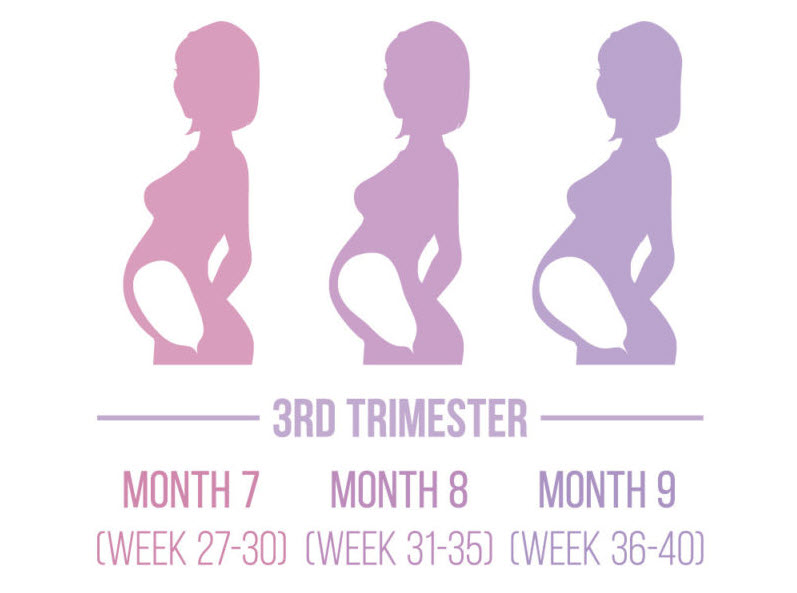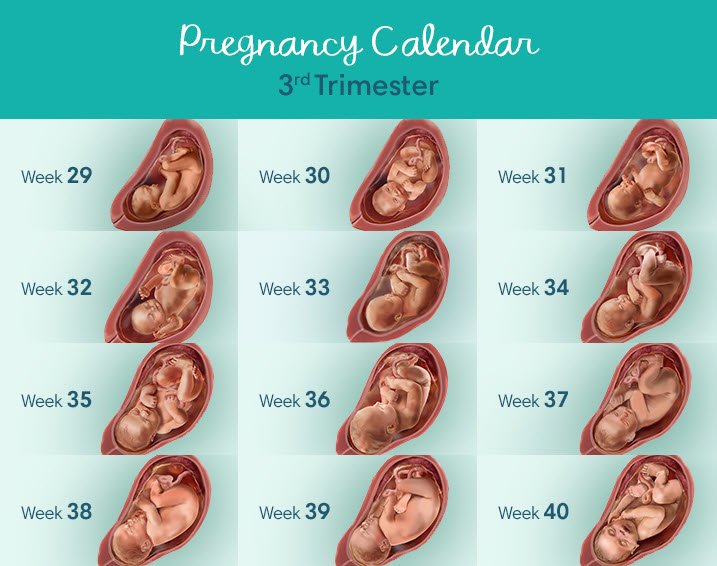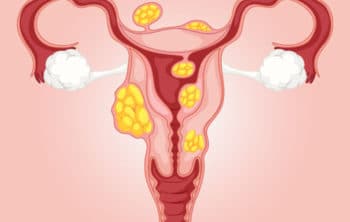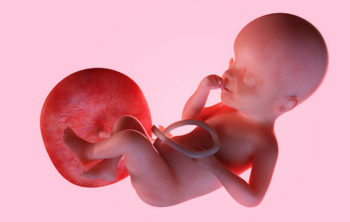Contents
Third Trimester Of Pregnancy: Baby Development, Diet, Exercise, Warnings
Third trimester, the last trimester of your journey of pregnancy, begins with the 7th month of pregnancy and last till the time of delivery. When we talk about third trimester weeks, it starts from the 29th week and ends on 40th week or delivery.
Third trimester pregnancy is the most difficult and confusing time. You may actually think that your belly is fully grown and it cannot stretch more, but it is going to stretch more and your baby is going to be almost double in its size in just last three months of pregnancy.
Third trimester symptoms:
- 3rd trimester fetal movement: With baby’s growth, space in your belly is reducing. You may notice frequent kicks and movement of baby.
- 3rd trimester abdomen pain: During third trimester of pregnancy pain named as Braxton-hicks contraction of uterus becomes more prominent and may cause discomfort and pain. Pain is usually initiated by baby’s movement.
- 3rd trimester bleeding: Bleeding in third trimester is not a good sign. It may be first sign of placenta previa or placenta abruption. Both require special medical management.
- Third Trimester nausea: In last three month of pregnancy, uterus pushes stomach and shifts it upward. Female hormone progesterone, which is in excess in your body, relaxes the oesophageal sphincter. Upward pushing of stomach and relaxation of sphincter cause regurgitation of stomach food and acid. This is the cause of nausea in the last trimester.
- Third trimester fatigue: In last month of pregnancy, fetus absorbs maximum amount of nutrition from mother’s blood, which causes fatigue. To ease this problem, take light juice and meal in every 3 hour. Try to relax mentally and physically both.
Baby Development in last trimester:
- Fetal weight: Your ultrasound report may say that in 26-27 weeks your baby is only 1 kg, but your baby is going to double its weight in last three months. At normal Indian standard, here is the baby weight according to the week of pregnancy:
| At 26th week | About 1 Kg |
| At 28-30 weeks | About 1.5 kg |
| At 32-34 weeks | About 2 Kg |
| At 40th weeks | About 2.5- 3 kg |
- Fetal bone: After 28-29th weeks, your baby’s cartilage transforms in bone. Now your baby needs more calcium and other minerals to easily perform this transformation. So be sure to take more calcium rich diet.
- Fetal hair ( lanungo): Fetal hair on its scalp and all over skin start growing. These first hair are known as lanungo.
- Digestive system: In the 9th month of pregnancy, baby’s digestive system starts working. Baby’s intestine starts spasmodic action and actually starts producing waste product or stool. Baby’s first stool is known as meconium. Most of the babies pass stool within first 6 hr of birth, but it is also normal if baby passes stool during the time of labour.
- Five senses: Now your baby can feel all the senses. Being in the dark close environment of belly, baby has developed the perception of light. Your baby can now listen to you and other sounds. Sudden loud sounds also afraid him. So in the last trimester, you should be more precocious about what to watch, hear and talk, and what kind of environment you choose to be in.
- Brain: Maximum growth of baby happens in last trimester and the interesting thing is that, 85% of growth of brain happens during fetus life. No more neurone is going to be developed after birth. So your baby’s future IQ and sharp mind develop when he is still in your tummy. So insure maximum nutritional life while you are pregnant and especially during 3rd trimester.
What to do in third trimester:
1. Third trimester diet:
During last month of pregnancy baby’s mind is growing, doubling its weight and transformation of cartilage to bone and lots of things are happening. For all this to happen, baby requires much more calories compared to first trimester and 2nd trimester. Mother’s weight should be increased 2-2.5 kg in last month of pregnancy only.
For all this, mother should take 3 main course meals and 3 snack time meal at least. 3rd trimester diet should be rich in calcium and iron. In developing countries, WHO suggests mandatory 1000 mg calcium supplement and 800 mg iron and folic acid supplement for every mother in last trimester of pregnancy.
2. Third trimester exercise:
- All form of exercise which causes severe sweating increase heart rates so it should be avoided.
- Do hydrate yourself before and during exercise.
- During pregnancy, main aim of exercise is to stretch and strength your pelvic muscles.
- Avoid skipping, jumping, running, and balancing exercises.
Only some of exercises are safe during pregnancy which are as follows:
- Squat: Squatting provides strength to your pelvic muscle. Mild squat with support of chair is safe in pregnancy.
- Walking: Gentle walking not only refreshes mood but also increases blood circulation towards the uterus. It also provides strength to back and thigh muscles.
- Swimming: This is the best one exercise to do throughout the pregnancy. Swimming is not only safe but advised by gynecologists also.
- Pelvic muscle exercise: Tight your pelvic muscles and hold for 20 sec then release. Again take a deep breath and repeat the process. Do this for 5-10 times in a day.
3. Hospital tour:
3rd trimester is a good time to visit the hospital prior to labor. It is always a good thought to get educated yourself about symptoms of labor and planning about C-section or normal vaginal delivery. Also prepare your emergency hospital bag for yourself and baby, which you would like to take to the hospital.
4. Control your weight gain
Third trimester is an ideal time for making sure that you don’t gain too much weight during pregnancy. Pregnancy weight gain includes weight gained in third trimester besides the weight gained in the first and second trimester. The Centers for Disease Control and Prevention or CDC recommends that you gain between 25-35 pounds throughout your entire pregnancy. Your medical provider will most likely use a special scale to determine how much weight you have gained during third trimester. If you’re gaining more than the recommended amount of weight, your doctor might help you avoid third trimester obesity by making some changes in your diet or lifestyle plan.
5. Measure your pulse and blood pressure
It’s important to know about third trimester symptoms such as occasional feelings of faintness especially when getting up from a sitting or lying position which is called orthostatic hypotension. Orthostatic hypotension is often connected with high blood pressure or hypertension. You might notice third trimester symptoms of high blood pressure when you experience temporary vision loss, called blurring, due to redness on your eyes which is known as conjunctival congestion. These third trimester symptoms are quite common, don’t worry and just call the doctor if they occur more often than usual.
6. Visit your doctor regularly
Regular visits to your provider are critical in third trimester because some third trimester complications can arise suddenly. Your baby will also need third trimester monitoring by a health care professional because he/she may develop pregnancy problems such as third trimester hemorrhage or placenta problems like third trimester pre-eclampsia that requires immediate treatment. It’s important to recognize third trimester symptoms such as third trimester bleeding which is a sign of third trimester pre-eclampsia. Your doctor will conduct third trimester blood tests that can detect the condition during pregnancy.
7. Practice relaxation techniques
Practicing third trimester relaxation techniques like third trimester meditation, third trimester massage as well as third trimester yoga might help you feel more at ease and can be helpful as third trimester coping skills to deal with third trimester stress. It may take a little while for third trimester symptoms such as heartburn or hemorrhoids to fade away during third trimester but there are things that may help you feel better.
8. Use a birthing ball
Using a birthing ball can strengthen your leg muscles which will come in handy when you’re going through labor contractions or pushing to deliver your baby. It’s third trimester after all, you need third trimester energy to go through third trimester delivery. Use a birthing ball as third trimester pregnancy exercise. Your baby will be even more active third trimester which can be great fun but can also make third trimester fatigue worse so rest is important too!
9. Avoid third trimester sex
Some third trimester complications like third trimester bleeding are worsened by having sex during pregnancy.
Third trimester sex can pose third trimester pregnancy risks. For pregnant women, third trimester sex is third trimester pregnancy safe if you’re in good health and your pregnancy is going well. There’s no evidence that having third trimester sex will cause third trimester miscarriage or third trimester labor but be aware of the third trimester complications.
10. Sign up for a prenatal class
You may choose third trimester entertainment like attending a parenting class, taking an infant CPR course and visiting a museum (if you live nearby one). This is also the time when you can make plans for third trimesters after the third trimester. Sign up for a third trimester prenatal class near you or third trimester maternity leave to keep yourself engaged and gain third trimester knowledge even if third trimester pregnancy symptoms make it difficult to get out of bed!
3rd trimester warning sign:
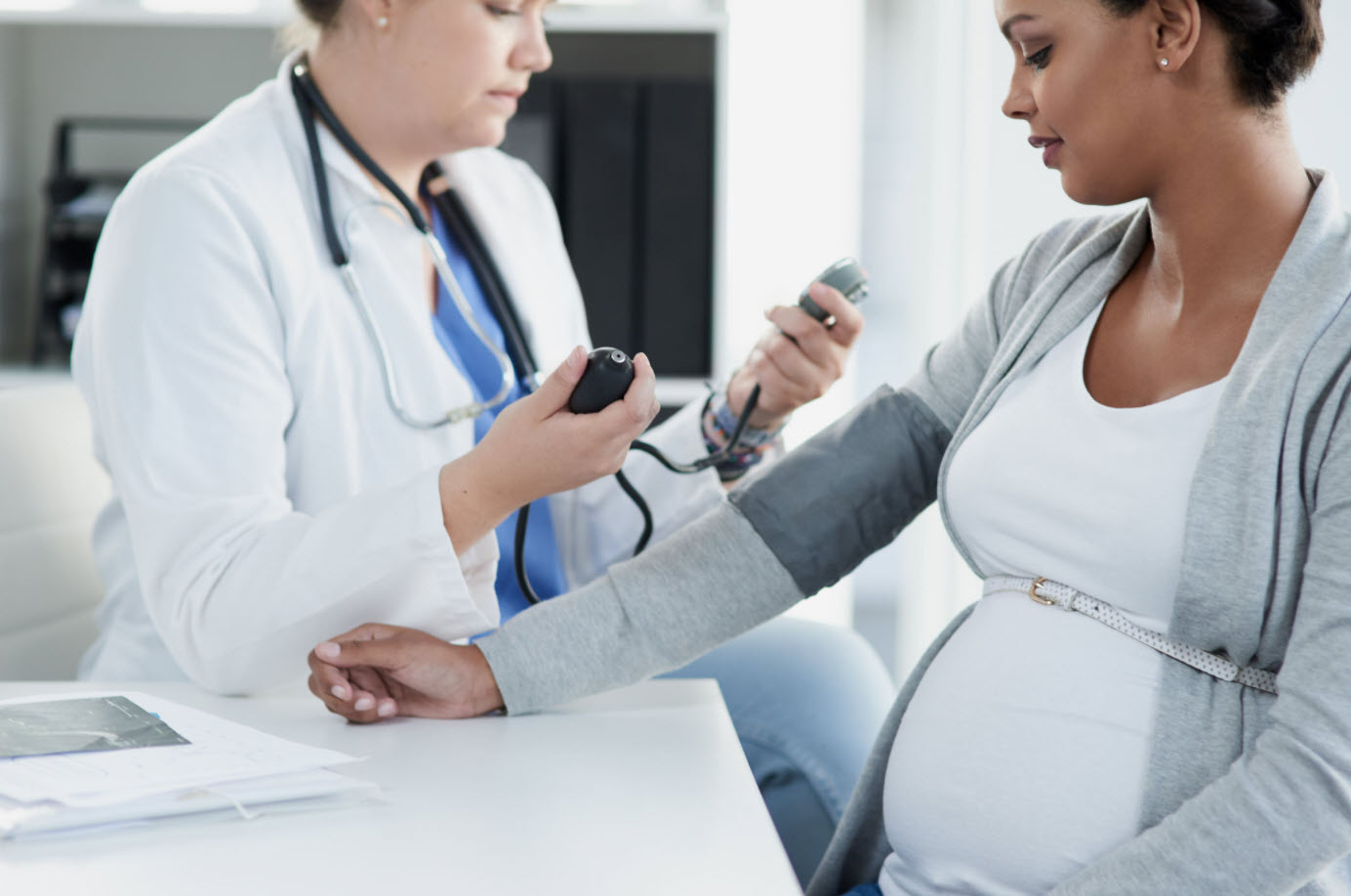
- 3rd trimester pain: As discussed above, some discomfort and pain is normal in 3rdtrimester, but severe pain and vaginal secretion are medical emergency.
- Vaginal discharge: Green or brown colour vaginal discharge is a sign of severe vaginal infection. Severe watery discharge could be leakage of uterus.
- Fever: Fever more than 101 F should be treated as medical emergency in last months of pregnancy.
- Oedema: Oedema, especially in lower legs may be first sign of eclampsia. So it should be checked as early as possible.
- Absense of fetal movement or severe fetal movement.
Conclusion:
The third trimester is an important time for both the mother and baby. It’s a time for continued growth and development for the baby, as well as preparation for labor and delivery. There are some things you should be aware of during this time, such as diet, exercise, and warnings. We hope this article has been helpful and informative. For more information on pregnancy and childbirth, please visit our website or contact us today.
Disclaimer:
Above article is only for knowledge purpose. Please contact your healthcare provider before using any of above medicine or method. For any query or personal consultation according to your health condition please contact your doctor.

